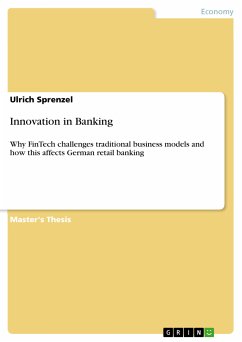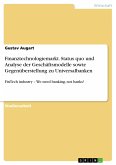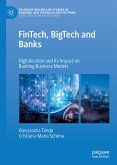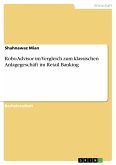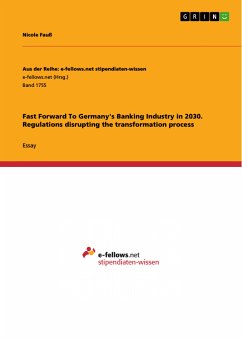Master's Thesis from the year 2015 in the subject Business economics - Banking, Stock Exchanges, Insurance, Accounting, grade: 1.3, Technical University of Munich (School of Management), course: Innovation and Business Creation, language: English, abstract: The impact of the financial crisis was a challenge for international and German banks and a test for the robustness of their business models. The consequences were stricter financial regulations introduced by Basel III and banks were forced to reduce proprietary trading and to refocus on traditional core banking business. Today supervisory authorities require sufficient and appropriate risk management systems to ensure financial stability and thus the internal operational complexity has increased and generates additional costs. In the aftermath of the financial crisis some banks are still struggling to regain competitiveness in combination with diminishing margins. In particular those banks are challenged with high dependency from interest income by deposit-financed retail banking business. In recent years financial technology companies, commonly known as FinTech, gained more importance in the financial industry and challenge banks and established business models. Digitisation is advancing in all industries and the music and media industry has already experienced a painful transformation process and a similar development is expected as well for the financial industry. Depending on how revolutionary the technological innovation is the more intense will be the impact on business models and in consequence fast adaptability is essential. The level of activity within FinTech is enormous at the moment in Germany and over one hundred new companies were launched in 2014. As a consequence digital business models are analysed with respect to core competences and how FinTech generates benefits for customers by improving the value with innovative digital solutions.

